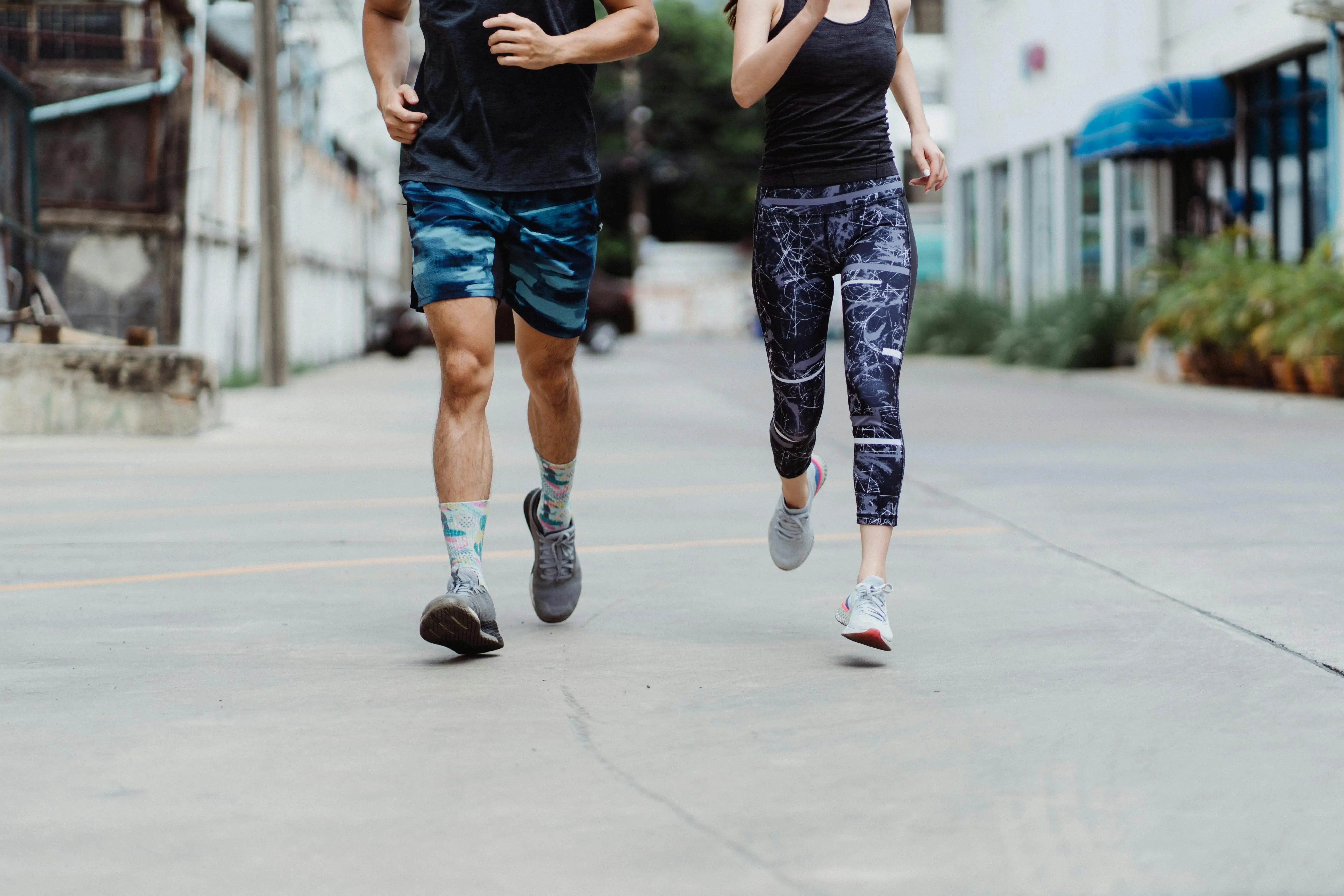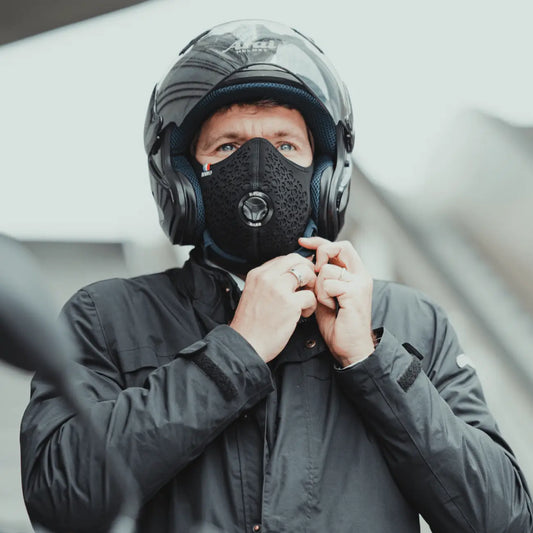
Running is an excellent physical activity that provides numerous health benefits. However, when exercising in densely populated areas affected by heavy traffic, it's not uncommon to experience abnormal shortness of breath or even real difficulty breathing. This discomfort can become unpleasant, especially when it persists. But what are the reasons for this? Dyspnea , especially in polluted urban environments? Let’s examine why this happens and how to fix it.
Environmental factors and impact on respiration
One of the main culprits when talking about respiratory problems One of the biggest problems encountered while jogging in an urban environment is air pollution. Motor vehicles release various pollutants such as nitrogen dioxide and fine particles, which can compromise air quality. When you inhale this stale air while exercising, your lungs and airways suffer the consequences.
Indeed, the increased presence of these irritants in the air quickly tires the respiratory system. Over time, they can aggravate pre-existing conditions such as asthma . or others lung diseases . Furthermore, pollution has also been found to play a role in the development of cardiac arrhythmias by disrupting cardiovascular function.
The influence of stress and anxiety
Besides pollution, the urban context itself can be a source of stress . The constant noise of vehicles, untimely honking horns, and even just weaving through pedestrians can induce a state of nervous tension. Stress can then aggravate feelings of shortness of breath by creating a reflex hyperventilation which further depletes lung capacity.
Additionally, the negative approach to racing in these environments can lead to a improper posture , thus accentuating breathing difficulties. Poor posture restricts the natural mechanics of the diaphragm and other muscles responsible for efficient breathing.
Solutions for easier breathing
Now that we've identified some of the factors that cause breathing difficulties, let's explore some practical solutions to alleviate this problem. Here are several strategies to consider for those who want to run around town without losing their breath:
- Choose the right routes and times: Choose times when traffic is less dense, such as early morning or late evening, and if possible, choose routes near green parks or waterways.
- Practice breathing exercises: Complementing your running sessions with controlled breathing techniques can help strengthen your breathing mechanism and manage stress.
- Adjust your posture: Make sure to stand up straight while running, with relaxed shoulders, to optimize the volume of air inhaled and exhaled.
- Use an anti-pollution mask: Although it can be somewhat uncomfortable, a good filter mask can significantly reduce the inhalation of harmful particles.
Dyspnea and its medical implications
Running provocatively regular breathing difficulties should be taken seriously as it could also reveal underlying medical concerns. Commonly involved conditions include heart failure , chronic lung disease, and circulatory problems that impair the body's ability to get enough oxygen during exercise.
Excessive shortness of breath could indicate that the heart is working too hard to pump oxygenated blood throughout the body due to inadequate blood flow or myocardial weakness. Similarly, cyclical cardiac arrhythmias can interfere with a runner's performance, making each stride more difficult to complete.
When should you consult a healthcare professional?
If you find that despite all these adjustments, your symptoms persist or worsen, it's a good idea to consult a doctor. Recurrent dyspnea requires a medical evaluation to rule out any serious conditions and discuss possible treatment options.
- How to participate in specialized examinations: Depending on the initial findings, lung function tests or electrocardiograms may be recommended.
- Adopt a personalized action plan: Your doctor may suggest medications to control asthma or other interventions tailored to your individual situation.
Benefits of Running in a Natural Environment
For those seeking a significantly more enjoyable exercise experience, moving to nearby natural areas offers multiple benefits. Running away from the hustle and bustle of the city not only reduces pollution, but it also provides a relaxing environment that soothes the mind.
Another major benefit is the improved psychological impact: nature promotes relaxation and reduces anxiety, which often helps spontaneously regulate breathing during exercise. Furthermore, scenic landscapes encourage mindfulness and heighten the enjoyment of the activity itself.
Learn about ecological alternatives
While regular trips to the countryside can be a hassle, some green initiatives in urban areas aim to gradually convert sections of roadways into pedestrian spaces with integrated plant structures. Supporting and utilizing these developments not only contributes to your well-being but also to the overall reduction of environmental toxicity to which everyone is exposed on a daily basis.
Examples of innovative approaches:
- Participate in local events promoting shared and temporary use of main roads by cyclists and pedestrians.
- Establish a collective apartment between committed users to promote active transport.
Ultimately, while running in an urban outdoor environment can present potential breathing challenges, effectively juggling spatial adaptation and proactive management will certainly allow you to get more out of each running session, while protecting your cardiorespiratory health.
The reflex to adopt: the anti-pollution mask for running in the city
Running in the city, especially in high-traffic areas, directly exposes your body to a high concentration of pollutants. During exercise, your breathing accelerates, increasing the absorption of fine particles, exhaust fumes, and allergens present in the air. To continue practicing your activity in an urban environment without putting your health at risk, a simple and effective solution exists: the anti-pollution mask .
Among the most efficient, the R-PUR mask is at the top of the list. Combining ultra-efficient filtration (FFP3) and breathing comfort. It blocks ultrafine particles (up to PM0.05), toxic gases, pollens and even viruses , while ensuring good ventilation during the race. Ergonomic, lightweight and fitted, it does not hinder movement or breathing.
With R-PUR, you can run without compromising your respiratory health , even in the heart of city traffic.
Discover our cycling mask to breathe better while running in the city.

You can also discover:
- Why does my breathing become difficult after walking near a highway?
- Why do I often have difficulty breathing outdoors in big cities?
- Why do I have breathing problems after spending time outdoors?
- Why do I always have irritated airways after a long walk?
- Why do I always get a dry throat after walking down a busy street?
- Why do I often have a blocked nose after a day in a polluted environment?


